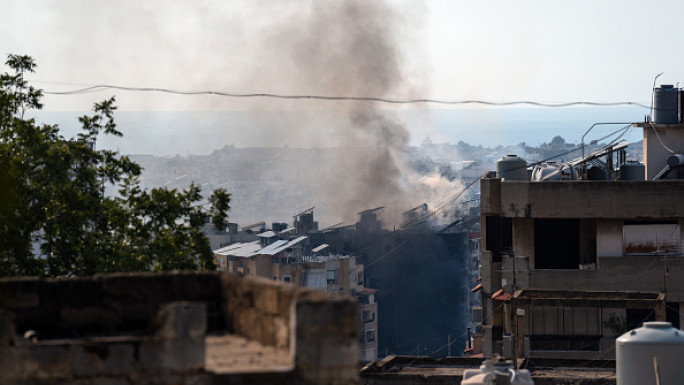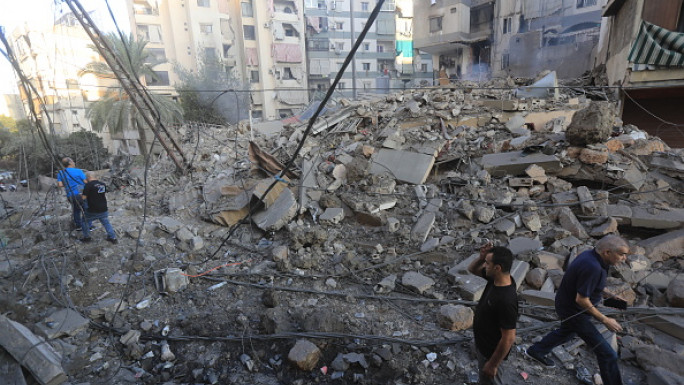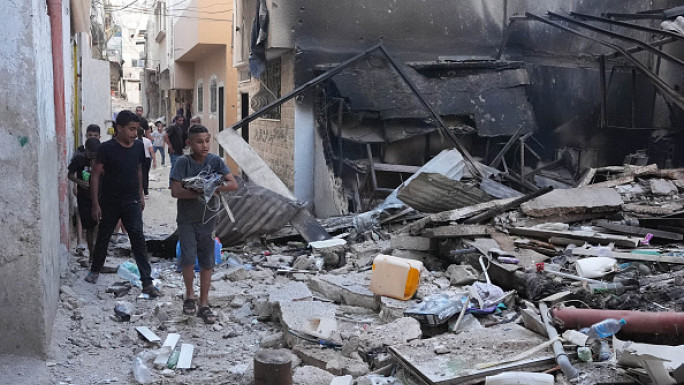Tunisia's anti-terror bill is flawed says Human Rights Watch
Tunisia's anti-terror bill is flawed says Human Rights Watch
Lawmakers in Tunisia are reviewing fresh anti-terror legislation that potentially could roll back civil liberties and pave the way for human rights abuses.
3 min read
The power given to the security services will shape Tunisia's future (Getty)
The Tunisian government’s new draft counter-terrorism law would permit extended incommunicado detention, weaken due process guarantees for people charged with terrorism offenses and allow the death penalty, Human Rights Watch warns in a new report.
The government sent the revised legislation to parliament following the killing spree at the Bardo Museum, which claimed 22 lives, most of whom were foreign tourists.
“While Tunisia should take all reasonable steps to address terrorism and protect public safety, some provisions of the proposed law could lead to serious human rights violations,” said Eric Goldstein, deputy Middle East and North Africa director.
“Respect for human rights needs to be at the law’s heart for counterterrorism efforts to succeed.”
The government of Zine El Abidine Ben Ali tried about 3,000 people on terrorism charges under the current law, which was adopted in 2003 before he was ousted in early 2011.
| Tunisia’s efforts to restore the rule of law will take a step backward if the new proposals are adopted |
Many of the cases were brought against people for political dissent, with convictions based on confessions extracted under torture, a United Nations report found.
The proposed law would revise a draft that the government submitted to the National Constituent Assembly (NCA), Tunisia’s parliament, in January 2014. The assembly suspended voting on the draft amid disagreements over its provisions and in advance of legislative elections in October.
From a human rights perspective, the new draft is worse than the 2014 draft as it would allow police to hold suspects in incommunicado pre-charge detention for up to 15 days with a prosecutor’s consent and without bringing the person before a judge.
During that time the suspect would have no access to a lawyer or contact with their family, increasing the risk of torture. Currently, Tunisian law allows authorities to hold suspects – including those accused of terrorism-related crimes – for a maximum of six days.
The law would allow the death sentence for anyone convicted of a terrorist act resulting in death although Tunisia has had a moratorium on executions since 1991.
Legitimate concerns
Tunisia does have serious internal security concerns considering not only the sensational Bardo attack but also a wider campaign, which has claimed the lives of more than 40 members of Tunisia’s army and other security and armed forces and wounded at least 148 others since the fall of President Ben Ali.
While Human Rights Watch highlights several points of concern in the legislation, the latest version of the draft law retains improvements over the 2003 law from the draft debated in the assembly in 2014.
These include reparation provisions that would provide support for terrorism victims, including free health care in public hospitals and judicial assistance, and a ban on deporting or extraditing suspects to countries where they would face torture or other inhumane treatment.
It would also create a commission headed by a magistrate to devise a comprehensive strategy to address terrorism.
The new version also retains positive provisions of the 2014 draft requiring judicial supervision of surveillance and other activities conducted by Tunisia’s security and intelligence services, including interception of communications and infiltration of groups the government considers terrorists.
However, rather than placing surveillance decisions under the exclusive oversight of independent judges, it extends the power to order such measures to prosecutors, who under Tunisian law are linked to the executive branch.
A major point of concern is the broad and ambiguous definition of terrorist activity, which could spell a return to political repression under the guise of anti-terror operations.
“Tunisia’s efforts to restore the rule of law after the abuses under Ben Ali will take a step backward if the new counterterrorism proposals are adopted in their present form,” Goldstein said.
“Abusive measures such as executions and incommunicado detention have no place in the new Tunisia, even to confront these heinous new attacks.”


![Minnesota Tim Walz is working to court Muslim voters. [Getty]](/sites/default/files/styles/image_684x385/public/2169747529.jpeg?h=a5f2f23a&itok=b63Wif2V)




![Migrants crossing English Channel [Getty]](/sites/default/files/styles/image_330x185/public/2065411986.jpeg?h=a5f2f23a&itok=QBLbOmIe)
![Pro-Palestinian, Lebanese vigil in Australia [Getty]](/sites/default/files/styles/image_330x185/public/2177064921.jpeg?h=a5f2f23a&itok=OybWZMXu)
![Israeli officials are considering exiling Yahya Sinwar to Sudan as part of a deal to end the war [Getty]](/sites/default/files/styles/image_212x120/public/1251837582.jpeg?h=127ba027&itok=UTeIubIr)